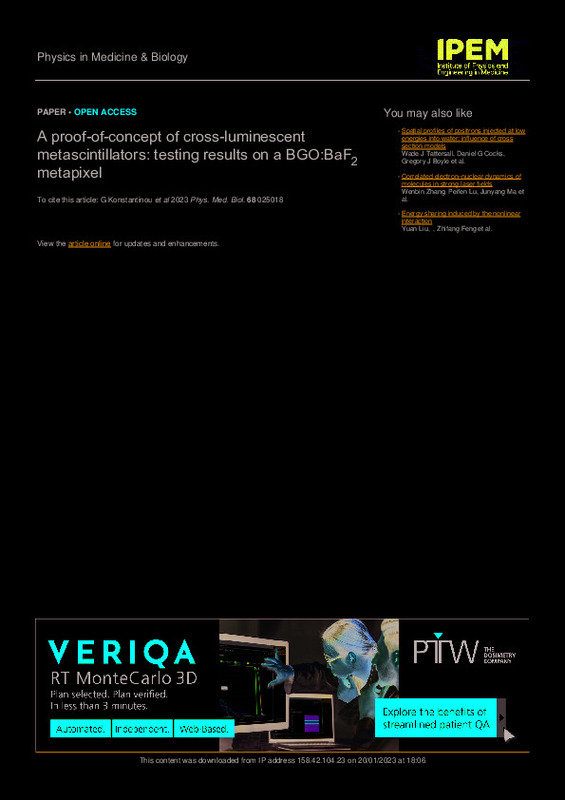JavaScript is disabled for your browser. Some features of this site may not work without it.
Buscar en RiuNet
Listar
Mi cuenta
Estadísticas
Ayuda RiuNet
Admin. UPV
A proof-of-concept of cross-luminescent metascintillators: testing results on a BGO: BaF2metapixel
Mostrar el registro completo del ítem
Konstantinou, G.; Latella, R.; Moliner, L.; Zhang, L.; Benlloch Baviera, JM.; González Martínez, AJ.; Lecoq, P. (2023). A proof-of-concept of cross-luminescent metascintillators: testing results on a BGO: BaF2metapixel. Physics in Medicine and Biology. 68(2):1-13. https://doi.org/10.1088/1361-6560/acac5f
Por favor, use este identificador para citar o enlazar este ítem: http://hdl.handle.net/10251/191664
Ficheros en el ítem
Metadatos del ítem
| Título: | A proof-of-concept of cross-luminescent metascintillators: testing results on a BGO: BaF2metapixel | |
| Autor: | Konstantinou, G. Zhang, L. | |
| Fecha difusión: |
|
|
| Resumen: |
[EN] Objective: Time-of-flight positron emission tomography (PET)is the next frontier in improving the
effective sensitivity. To achieve superior timing for time-of-flight PET, combined with high detection
efficiency and ...[+]
|
|
| Palabras clave: |
|
|
| Derechos de uso: | Reconocimiento (by) | |
| Fuente: |
|
|
| DOI: |
|
|
| Editorial: |
|
|
| Versión del editor: | https://doi.org/10.1088/1361-6560/acac5f | |
| Código del Proyecto: |
|
|
| Agradecimientos: |
Part of the research presented in this manuscript was funded by the ERC grant Innovative PET scanner for
dynamic imaging, agreement no 695536. The concept presented in this manuscript was based on research first
developed ...[+]
|
|
| Tipo: |
|









